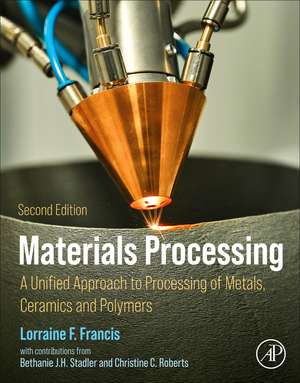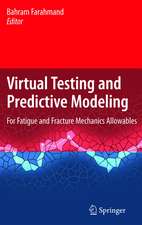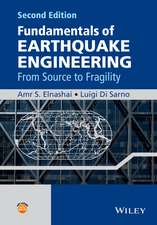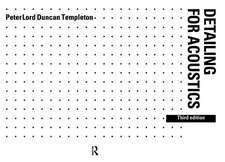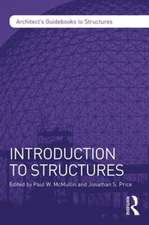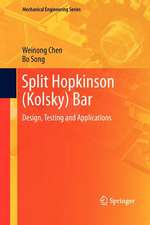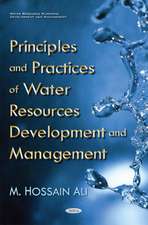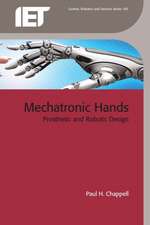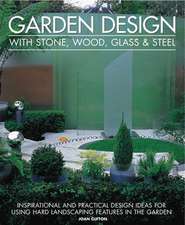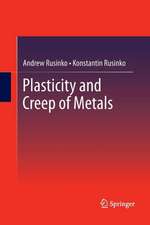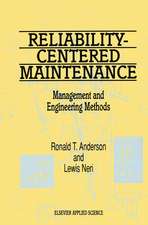Materials Processing: A Unified Approach to Processing of Metals, Ceramics, and Polymers
Autor Lorraine F. Francisen Limba Engleză Paperback – 26 apr 2024
This fully updated edition includes expanded coverage of additive manufacturing and more comprehensive problem sets.
- Includes comprehensive coverage on the fundamental concepts of materials processing
- Provides coverage of metals, ceramics, and polymers in one text
- Presents examples of both standard and newer additive manufacturing methods throughout
- Gives students an overview on the methods that they will likely encounter in their careers
| Toate formatele și edițiile | Preț | Express |
|---|---|---|
| Paperback (1) | 583.98 lei 5-7 săpt. | +62.90 lei 4-10 zile |
| ELSEVIER SCIENCE – 26 apr 2024 | 583.98 lei 5-7 săpt. | +62.90 lei 4-10 zile |
| Hardback (1) | 721.41 lei 6-8 săpt. | |
| ELSEVIER SCIENCE – 5 ian 2016 | 721.41 lei 6-8 săpt. |
Preț: 583.98 lei
Preț vechi: 763.91 lei
-24% Nou
111.75€ • 116.97$ • 93.01£
Carte tipărită la comandă
Livrare economică 24 martie-07 aprilie
Livrare express 21-27 februarie pentru 72.89 lei
Specificații
ISBN-10: 0128239085
Pagini: 666
Ilustrații: Approx. 253 illustrations (53 in full color)
Dimensiuni: 152 x 229 x 35 mm
Greutate: 0.45 kg
Ediția:2
Editura: ELSEVIER SCIENCE
Cuprins
2. Starting Materials
3. Melt Processes
4. Solid Processes
5. Powder Processes
6. Dispersion and Solution Processes
7. Vapor Processes
Recenzii
Descriere
"Materials Processing" teaches students the fundamental principles involved in the processing of engineering materials, specifically metals, ceramics and polymers, from starting or raw materials through to the final functional forms. Processing is frequently treated from a materials specific point of view with courses and books that cover only one type of engineering material. This new text covers processing using a unified approach that is based on the state of matter most central to the shaping of the material: melt, solid, powder, dispersion and solution, and vapor. With this approach, students learn processing fundamentals and appreciate the similarities and differences between the materials classes.
Coverage of metal, ceramic and polymer processing in a single text provides a self-contained approach and consistent nomenclature that allow for easier comparisons between various materials and processesEmphasis on fundamental principles gives students a strong foundation for understanding processing and manufacturing methodsDevelopment of connections between processing and structure builds on students existing knowledge of structure - property relationshipsExamples of both standard and newer additive manufacturing methods throughout provide students with an overview of the methods that they will likely encounter in their careers"
